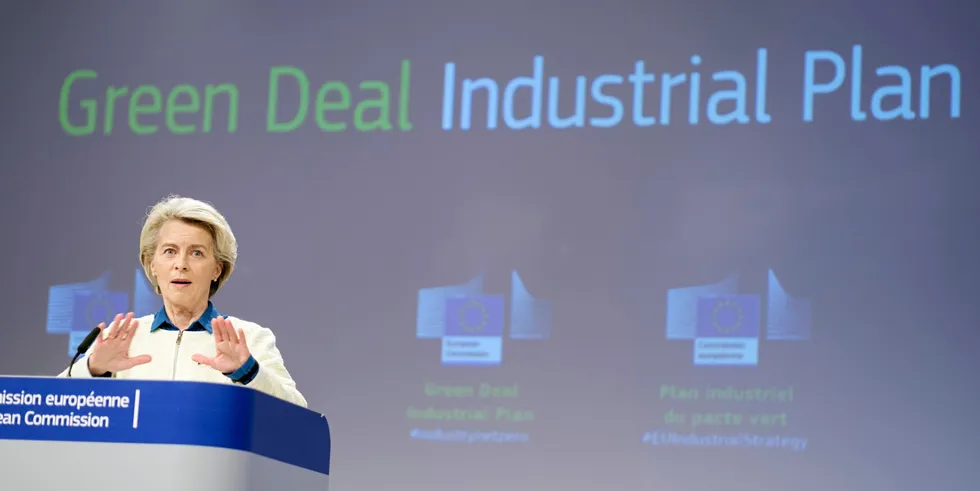EU unveils massive package to 'level playing field' with US in green subsidies spat
Green Deal Industrial Plan launched in response to Biden’s Inflation Reduction Act (IRA) aims at keeping key energy transition technology industries in Europe

Green Deal Industrial Plan launched in response to Biden’s Inflation Reduction Act (IRA) aims at keeping key energy transition technology industries in Europe
